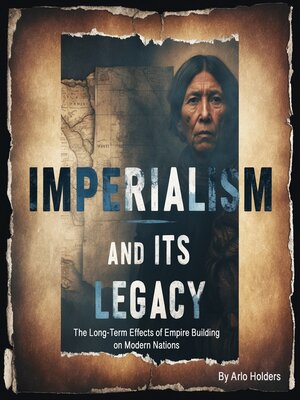Imperialism and Its Legacy
audiobook (Unabridged) ∣ The Long-Term Effects of Empire Building on Modern Nations
By Arlo Holders

Sign up to save your library
With an OverDrive account, you can save your favorite libraries for at-a-glance information about availability. Find out more about OverDrive accounts.
Find this title in Libby, the library reading app by OverDrive.



Search for a digital library with this title
Title found at these libraries:
| Library Name | Distance |
|---|---|
| Loading... |
Imperialism, a term that evokes both grandeur and controversy, refers to the practice of extending a nation's power and dominion over foreign territories, often through conquest, colonization, or economic and political influence. At its core, imperialism involves the domination of one country over another, typically to exploit resources, expand markets, or spread cultural and political ideologies. While the history of imperialism stretches back to ancient civilizations, the modern form of imperialism emerged during the Age of Exploration, when European powers began to seek new trade routes and expand their influence across the globe.
The roots of imperialism are deeply entwined with the economic, political, and cultural motivations of the imperial powers. From an economic perspective, nations sought to secure access to valuable resources, such as gold, silver, spices, and agricultural products, which were crucial for their economic growth. The industrial revolution further fueled this desire for resources, as new technologies created an insatiable demand for raw materials and new markets to sell finished goods. Politically, imperialism was driven by the need for strategic dominance, with nations eager to expand their influence and prevent rivals from gaining power. Cultural and ideological motives, such as the belief in the superiority of one's own civilization and the desire to "civilize" and Christianize indigenous peoples, were also significant driving forces behind imperial expansion.
The rise of modern imperialism coincided with the emergence of powerful European states, including Britain, France, Spain, Portugal, and later Germany and Italy, who sought to expand their empires across Africa, Asia, and the Americas.







